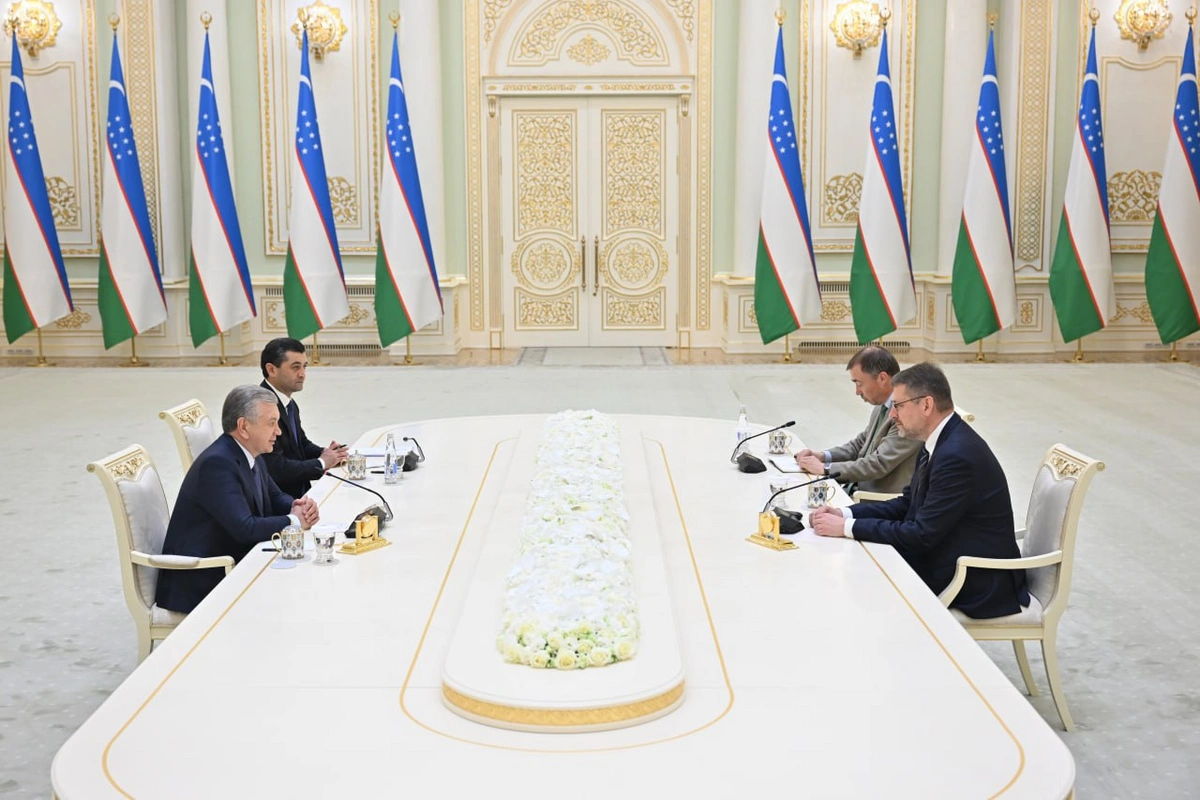
@president.uz
On Tuesday in Tashkent, President Shavkat Mirziyoyev met with Eduards Stiprais, the European Union’s Special Representative for Central Asia, as reported by the presidential press service.
The two sides reviewed the outcomes of the first Central Asia-European Union Summit, held in Samarkand in April, and discussed strategies for implementing its decisions, The Caspian Post reports citing The Times of Central Asia.
Expanding Strategic Cooperation
The talks focused on strengthening both bilateral and regional partnerships, with particular attention to advancing investment and technical cooperation initiatives valued at €12 billion. The parties also exchanged views on key regional developments and discussed plans for upcoming joint events.
Economic ties between Uzbekistan and the EU have accelerated in recent years. Since 2020, trade between the two has doubled to more than €6 billion, while Uzbek exports to the EU have quadrupled. Over a thousand joint ventures have been launched, and the value of European investment projects in Uzbekistan now exceeds €30 billion.
To attract more European investors, Uzbekistan has undertaken reforms to improve its business environment. In 2024 alone, trade with EU countries reached $6.4 billion, and more than a thousand European firms are currently operating in the country.
Geopolitical Undercurrents
During a separate visit to Uzbekistan in April, Russian Foreign Minister Sergey Lavrov criticized the EU’s growing presence in the region. He accused the EU of using development projects to expand geopolitical influence, particularly in sensitive areas such as customs and border management.
“We are categorically against politicizing cooperation processes and introducing ideological elements associated with Western attempts to dominate,” Lavrov stated, whilst emphasizing that Russia respects the sovereignty of its neighbors and will refrain from interfering in their internal affairs.
A Strategic Pivot
Uzbekistan’s growing ties with the EU reflect a strategic pivot to diversify its economic partnerships and reduce dependence on traditional allies like Russia and China. This move aligns with the region’s broader efforts to balance relations with global powers while fostering local development. The EU’s €12 billion investment and technical cooperation initiatives signal a deeper commitment to Central Asia, enabling countries like Uzbekistan to modernize industries, improve infrastructure, and enhance trade networks. This shift not only boosts Uzbekistan’s economic growth but also creates new opportunities for regional integration by connecting Central Asia with European markets through preferential trade agreements and enhanced supply chains.
However, the deepening EU-Uzbekistan partnership does not come without challenges in the region’s geopolitical landscape. Russia, historically a dominant influence in Central Asia, views the EU’s expanded presence as a potential threat to its sphere of influence. Likewise, China, which has established extensive connectivity projects under the Belt and Road Initiative, may perceive Uzbekistan’s alignment with the EU as a cautious step towards reducing reliance on Beijing-led projects. This strategic recalibration creates a more competitive environment, with Uzbekistan leveraging its geographical position to attract diverse investments while carefully navigating tensions between rival powers. By maintaining a delicate balance, Uzbekistan could emerge as an economic and diplomatic bridge linking Europe, Central Asia, and East Asia.
Share on social media